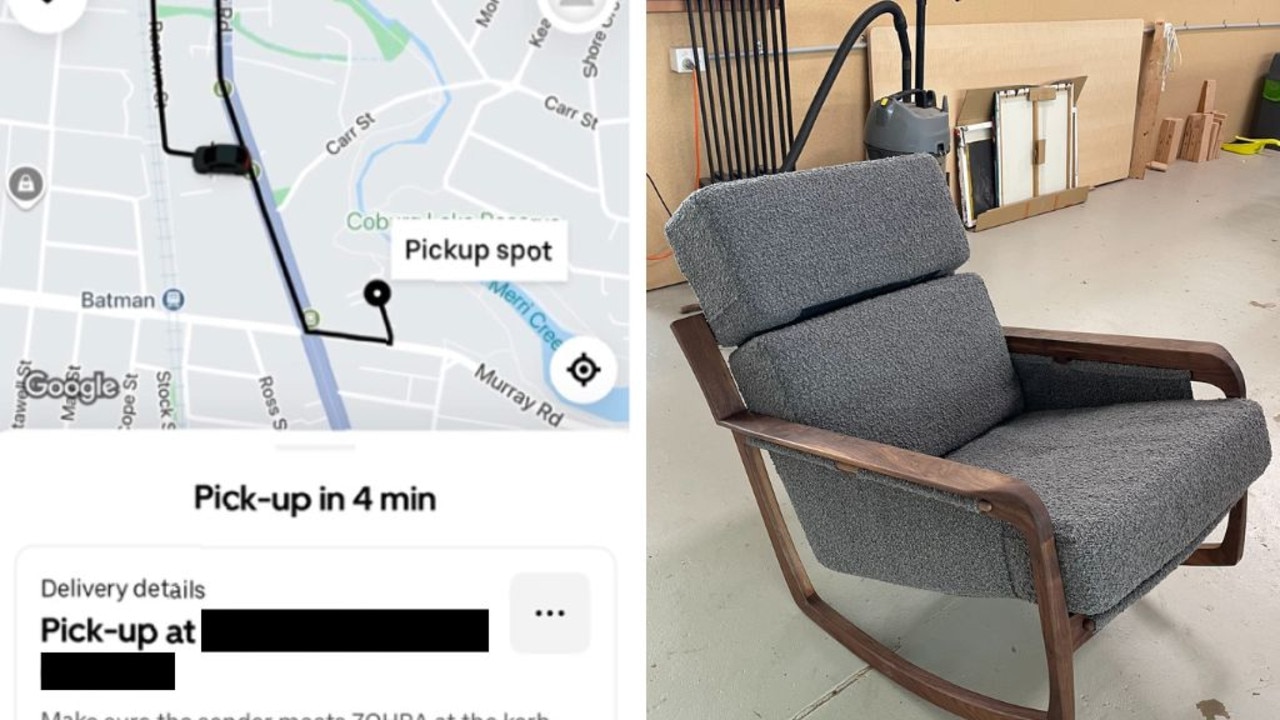Is Aldi breaking the law with their Special Buys sellouts?
ALDI customers have become increasingly frustrated as they miss out on Special Buys. But could the retailer be breaking the law?
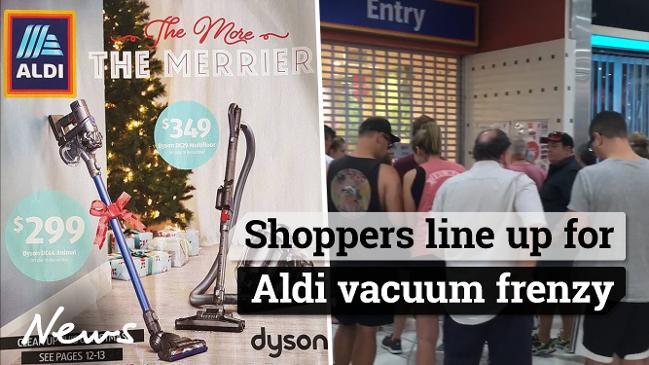
ANYONE who has missed out on purchasing an item from Aldi’s Special Buys range will know the unique disappointment that comes from discovering this sight in the supermarket’s middle aisle:
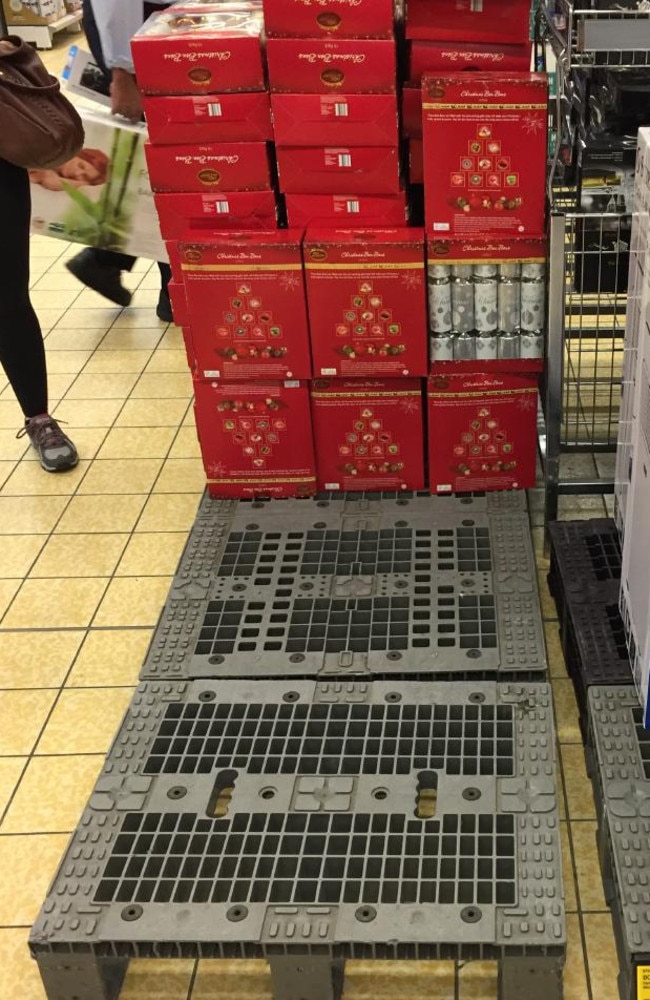
According to the website, Aldi’s Special Buys “can include anything from electronics, like LCD TVs and DVD players, to clothing and furniture”, and they are released twice a week.
News.com.au has repeatedly reported on the chaotic scenes as shoppers have clamoured for popular items such as the very reasonably priced ski gear, the kid’s electric car, the Dyson vacuum cleaners and the rocking chair that was a favourite with breastfeeding mums.
Shoppers have become increasingly frustrated by the retail chain providing limited stock of the popular items (sometimes only one or two items in each store), and queuing up only to be disappointed as the products sell out in a matter of seconds.
In some stores, customers have had physical altercations as they have grappled over the products.
@ALDIAustralia I don't get into the special buys but am disgusted by people fighting over the couple of items that are high demand. I just come to shop and I now plan my Sat as to whether you have something crazy on as that's when I'll skip your groceries and go to Coles #Stress
— Djave Bikenus (@PofEnus) December 16, 2017
ABC’s The Checkout homes in on Aldi’s Special Buys this week, to look at whether their system violates Australian Consumer Law.
Marie from Melbourne contacted the show and called their attention to Aldi’s recent “Back to School” Special Buys range.
With a daughter starting school this year, Marie was keen to get a pair of the advertised leather school shoes for her daughter.
On the day they went on sale, she says she went to seven Aldi stores by 11am. All of them had completely sold out of stock in each style shoe and in each size.
So her daughter missed out.
Presenter Scott Abbot asks the question: “How come Aldi have so much crap you don’t want (such as a unicycle) but almost none of what you actually need?”
According to Australian Consumer Law, the practice of “bait advertising” is illegal.
The law states that “businesses who advertise goods must offer such goods in quantities that are reasonable ... and they shouldn’t advertise if there are reasonable grounds for believing that the business will not be able to offer those goods for a period that is reasonable”.
Basically, you can’t advertise something if you don’t have a reasonable amount of stock.
The ACCC says that if an advertised product is in short supply, consumers should be told that in a “clear, specific and highly visible way”.
As Abbot points out, Aldi’s catalogue does have some fine print, but to read it, you’d need “some sort of Aldi microscope”.
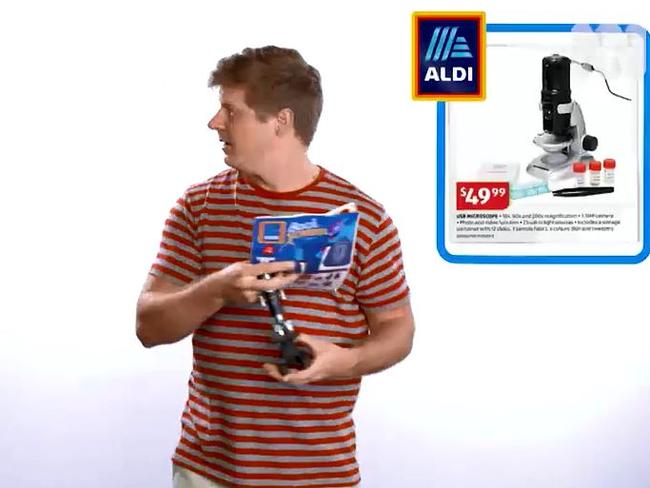
The fine print on the Aldi school shoes advertisement read: “While stocks last. Please note stocks are limited and will vary between stores. Despite our careful planning we apologise if selected stocks may sell out on the first day, due to unexpected high demand.”
As Abbot argues, “If you apologise for stock shortages before the first day of a sale, selling out hardly seems ‘unexpected’.”
He also says the catalogue’s fine print hardly seems “highly visible”, as required.
“Stocking Aldi stores with one pair of shoes per size for a ‘back to school’ sale hardly sounds like ‘careful planning’”.
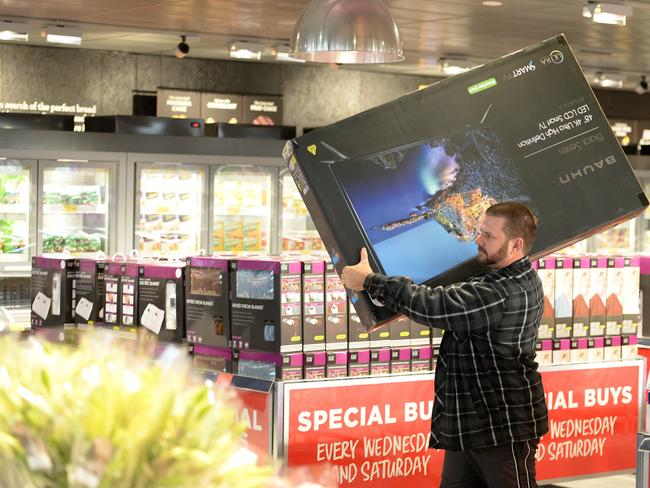
When The Checkout contacted Aldi about Marie’s specific school shoe gripe, they had this to say: “in the case of [Marie’s local area], stock was not allocated in a an optimal manner. “Optimal is another word for we failed to match demand of colour and size variants in a small selection of stores. We do feel that we comply with section 35 of the Consumer Law”.
Abbot responds to that email by saying “we feel differently ... The ACCC states “if there is not a reasonable chance the offer will be available, the company should offer corrective action, such as a raincheck, or a substitute product.”
As Marie wasn’t offered a raincheck or a substitute product, it could be argued that Aldi is guilty of “bait advertising”.

When news.com.au contacted the retail chain for comment, an Aldi Australia spokesperson said “driving demand and disappointing customers by not supplying enough stock is categorically not part of our business model”.
“We are a retailer and we are in the business of selling as many products as we can. On occasions, our products are in high demand and sellout faster than anticipated. In our business, this is not a win. We would always prefer to correctly balance the demand with the supply of stock and we consistently strive to achieve this balance.”
They cited the example of the SOHL rocking chair, which sold out in record time in July 2017.
“The sale of our SOHL Rocking Chair in January was a result of reordering stock for a second on sale date after unexpected high demand in July last year. We were surprised to learn of the high demand for a quality breastfeeding chair, and took this into consideration after initially underestimating the gap in this market.”
You can view the full episode of The Checkout on Tuesday, February 20 at 8pm on ABC and iview.




